Related Research Articles

The Grand National is a National Hunt horse race held annually at Aintree Racecourse, Aintree, Merseyside, England. First run in 1839, it is a handicap steeplechase over an official distance of about 4 miles and 2½ furlongs, with horses jumping 30 fences over two laps. It is the most valuable jump race in Europe, with a prize fund of £1 million in 2017. An event that is prominent in British culture, the race is popular amongst many people who do not normally watch or bet on horse racing at other times of the year.
Foinavon (1958–1971) was an Irish racehorse. He won the Grand National in 1967 at odds of 100/1 after the rest of the field fell, refused or were hampered or brought down in a mêlée at the 23rd fence. The fence was officially named after Foinavon in 1984.

The 2001 Grand National was the 154th official running of the Grand National horse race that took place at Aintree Racecourse near Liverpool, England, on 7 April 2001. It went ahead as planned, despite the cancellation of the 2001 Cheltenham Festival, caused by the foot-and-mouth disease crisis.
The 1846 Grand Liverpool Steeplechase, later to become known as the Grand National Steeplechase, was the eighth official annual running of a handicap steeplechase. It took place at Aintree Racecourse near Liverpool on 4 March 1846 and attracted a then-record field of 22 entrants. It was won by the unconsidered outsider Pioneer.
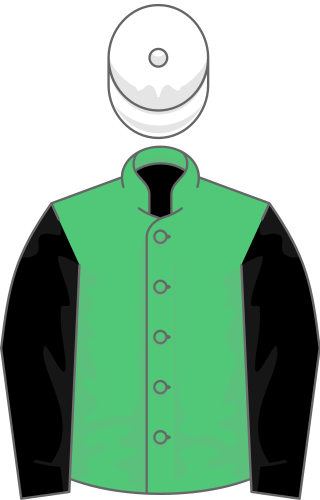
The 2006 Grand National was the 159th official annual running of the Grand National steeplechase which took place at Aintree near Liverpool, England, on 8 April 2006 and attracted the maximum permitted field of forty competitors for total prize money of £689,360 including £399,140 to the winner.

The 2009 Grand National was the 162nd running of the Grand National horse race that took place at Aintree Racecourse near Liverpool, England, on 4 April 2009.
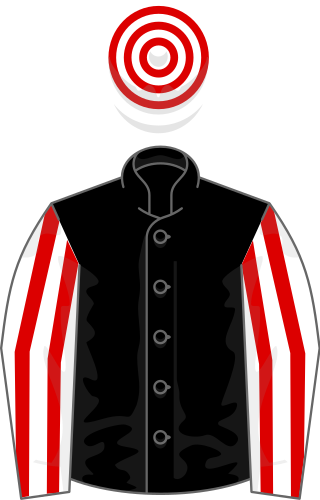
The 2004 Grand National was the 157th official annual running of the world-famous Grand National steeplechase which took place at Aintree near Liverpool, England, on 3 April 2004 and attracted the maximum permitted field of 40 competitors for total prize money of £600,000 including £348,000 to the winner.
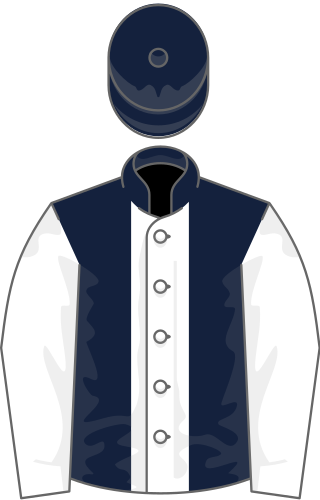
Cool Dawn was a National Hunt chaser of the 1990s who went from winning minor Point-to-Point races to winning the 1998 Cheltenham Gold Cup, the Blue Riband of National Hunt Racing.
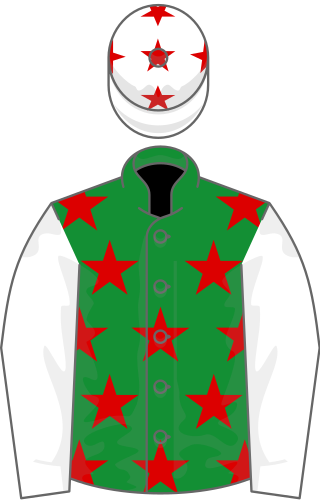
The 2003 Grand National was the 156th official renewal of the world-famous Grand National steeplechase that took place at Aintree at 3:45pm BST, on 5 April 2003.

The 2002 Grand National was the 155th official renewal of the Grand National steeplechase that took place at Aintree Racecourse near Liverpool, England, on 6 April 2002.
The 1993 Grand National was scheduled on 3 April 1993 to be the 147th running of the Grand National horse race, held annually at Aintree Racecourse near Liverpool, England.

The 1998 Grand National was the 151st official renewal of the world-famous Grand National steeplechase that took place at Aintree near Liverpool, England, on 4 April 1998.
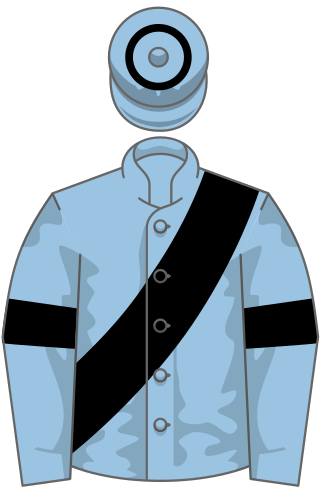
The 1986 Grand National was the 140th running of the Grand National horse race that took place at Aintree Racecourse near Liverpool, England, on 5 April 1986.
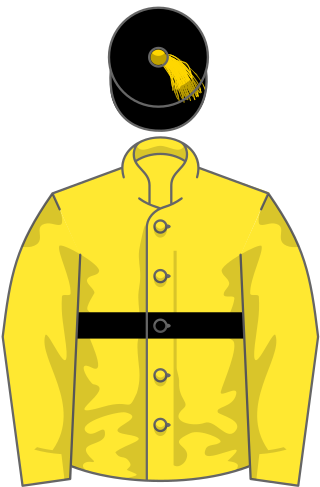
The 1985 Grand National was the 139th renewal of the Grand National horse race that took place at Aintree Racecourse near Liverpool, England, on 30 March 1985.
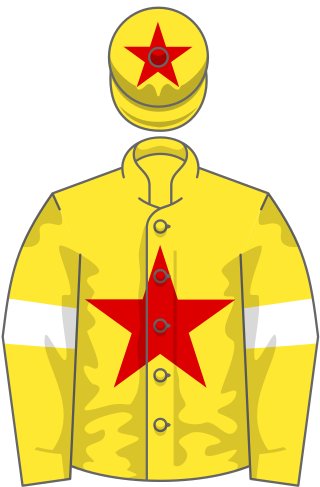
The 2012 Grand National was the 165th annual renewal of the Grand National horse race at Aintree Racecourse near Liverpool, England. The showpiece steeplechase, which concluded a three-day meeting which is one of only four held at Aintree throughout the year, took place on 14 April 2012. The maximum permitted field of 40 runners ran the last 4 miles 856 yards (7.220 km) of Aintree's National Course featuring 30 fences, competing for record prize money of £975,000, making it the highest-valued National Hunt race in the United Kingdom.

The 2014 Grand National was the 167th annual running of the Grand National horse race at Aintree Racecourse near Liverpool, England. The showpiece steeplechase, which concluded a three-day meeting, took place on 5 April 2014. The maximum permitted field of 40 runners competed for a share of a record £1 million prize fund, which makes the National the most valuable jump race in Europe.

Native River is an Irish-bred, British-trained, retired Thoroughbred racehorse who raced under National Hunt rules. He was a specialist long-distance steeplechaser known for his front-running style and apparently inexhaustible stamina. He won three minor hurdle races in the 2014/15 season and started his chasing career in the 2015/16 season, winning the Worcester Novices' Chase and the Mildmay Novices' Chase. He emerged as a top-class steeplechaser in the following season when he won the Hennessy Gold Cup, Welsh Grand National and Denman Chase as well as finishing third in the Cheltenham Gold Cup. In the 2017/18 season he won a second Denman Chase before recording his biggest win in the 2018 Cheltenham Gold Cup. In the 2019/20 season he won the Many Clouds Chase and achieved a record third win in the Denman Chase. His last win came in the Cotswold Chase in February 2021 and he was retired after a disappointing run in the 2021 Welsh Grand National. He is the most recent British-trained Cheltenham Gold Cup winner.
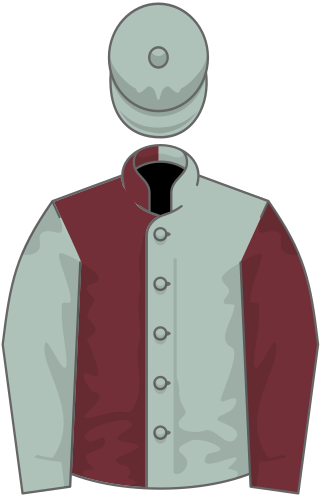
Rag Trade (1966–1978) was a British-bred Thoroughbred racehorse who competed in National Hunt racing.
Tipperary Tim was an Irish Thoroughbred racehorse that won the 1928 Grand National. He was foaled in Ireland and was a descendant of the undefeated St. Simon. Tipperary Tim was owned by Harold Kenyon and trained in Shropshire by Joseph Dodd. He was regarded as a fairly slow horse, but one who rarely fell. Tipperary Tim was a 100–1 outsider at the 42-runner 1928 Grand National, which was run in foggy conditions and very heavy going. A pile-up occurred at the Canal Turn jump that reduced the field to just seven horses. Other falls and incidents left only Tipperary Tim and the 33-1 Billy Barton in the race. Billy Barton struck the last fence and fell, leaving Tipperary Tim to win – Billy Barton's jockey remounted and finished a distant second. The incident led to controversy in the press who complained that a Grand National should not be won merely by avoiding accident. It led to changes to the course with the ditch at Canal Turn being removed for the following year's race. Tipperary Tim enjoyed no real success in other races.
Tim Norman was an English jockey known for his victory in the 1966 Grand National on the horse Anglo, which had odds of 50–1.
References
- ↑ "Anglo 1966 Grand National". grand-national.me.uk. Retrieved 11 April 2021.
- ↑ "Tim Norman bio". jockeypedia. Retrieved 11 April 2021.
- ↑ "Anglos years". sixties nationals.webs.com. Retrieved 11 April 2021.
- ↑ "Anglo pedigree". pedigreequery.com. Retrieved 11 April 2021.